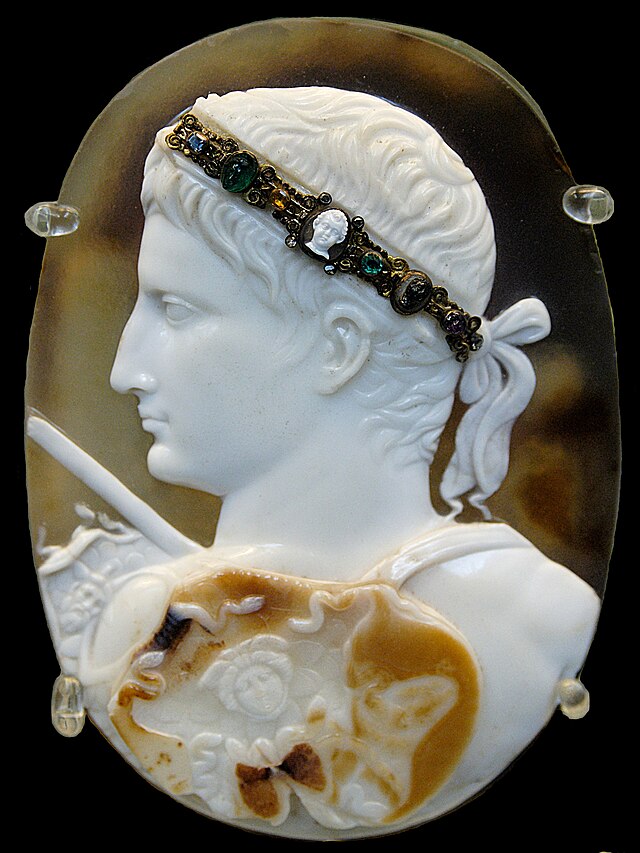
The Blacas Cameo of Augustus
Dated to 20-50 AD it is now in the British Museum. Vide Blacas Cameo
Image: Wikipedia
It is surely fair to say that, with the notable and crucial exception of the Child born in obscurity at some point in the latter years of Augustus’ life in Bethlehem in the troublesome province of Jusea, none of his contemporaries so dramatically shaped succeeding centuries, and not only in the West but worldwide. We still live in a world fashioned or refracted to us in part by Augustus.
Wikipedia has a biography of him which explores not only his career but also his not infrequent changes of names and title.
Through its good selection of portraits it shows the way in which a man who was described as not being vain about his personal appearance was studious in enforcing a standardised image of an ever-youthful princeps. He was clearly anxious to be perceived as the still youthful successor of his great-uncle Julius Caesar, and the guarantor of the Pax Romana.
The Wikipedia article can be seen at Augustus
A recent discovery by archaeologists close to Vesuvius may - may it should be said - have found his family villa at Nola in which he died. This was reported by Live Science in Villa near Mount Vesuvius may be where Augustus, Rome's 1st emperor, died
A clever, calculating, shrewd man and politician, in many ways cold and unemotional, he remains a pivotal figure in our collective consciousness and history. Cleopatra VII and Mark Antony may be more glamorous, but Augustus was the victor.
His last words were claimed to have been “Have I played the part well? Then applaud as I exit.” If true they convey a wry humour, maybe cynicism, but certainly self-awareness.
Suetonius recorded Augustus, when assessing his rule, saying “I found Rome a city of bricks and left it a city of marble.” As the Wikipedia biography says from certain lavish building schemes that was an exaggeration in terms of civic architecture in Rome itself, but as an allegory of his transformation of what had become the Roman Empire and its outward manifestation across the Mediterranean world it was not an immodest boast.
Ave Caesar!


No comments:
Post a Comment